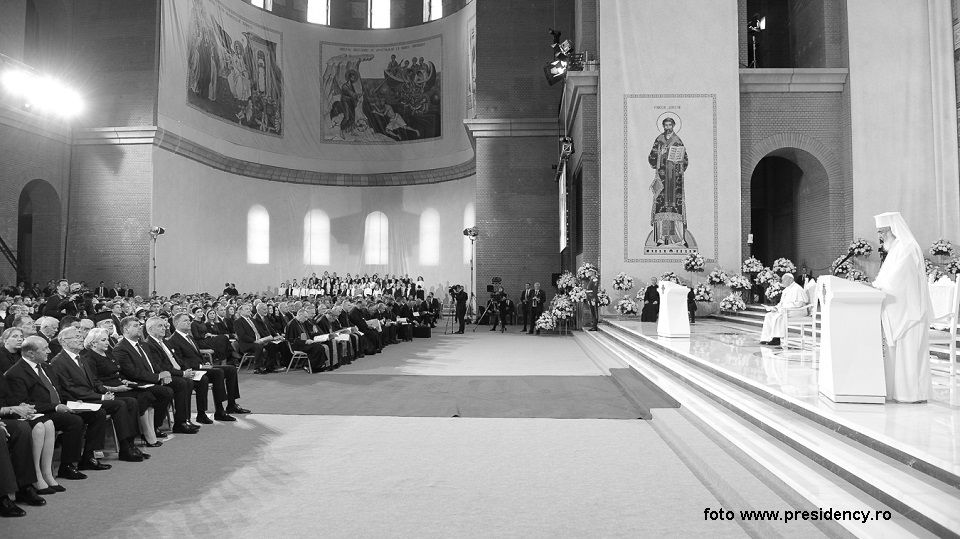November 11, 2014
For a roundup of domestic and international news, click here.

România Internațional, 11.11.2014, 12:00
ELECTION — Foreign Minister Teodor Melescanu has advanced several proposals to the Central Election Bureau to smooth the voting process in the run-up to the second round of the presidential election scheduled for November 16. The decision comes after thousands of Romanians could not cast their votes in the first round due to polling stations being overcrowded and to overcomplicated procedures. This has sparked large protests in numerous European cities as well as in Romania. On Monday Titus Corlatean tendered his resignation as Foreign Minister. The Foreign Ministry, whose direct remit is to organize the voting process for Romanians abroad, has already announced that additional polling stations and stamps will be made available up to a maximum number of seven, in accordance to the law. The Institution still claims however that opening new voting centres requires amendments to or derogations from the law. Social-Democrat Prime Minister Victor Ponta will be running against Christian Liberal Alliance representative and Mayor of Sibiu Klaus Iohannis.
FUNDS — Several EU Member States, including Romania, have called on the European Commission to earmark additional funds over the next year to help farmers affected by the Russian embargo on foodstuffs, as well as in the event of any other eventual crises. The sums needed stand at some 450 million euros, and are to be paid from the budget of the Common Agricultural Policy. The European Commission has already announced it out compensate vegetable growers and dairy producers incurring losses as a result of the Russian embargo within the total amount of 344 million euros. A decision in this respect will be taken during negotiations regarding the EU’s budget for 2015, which should be finalized by November 17.
TRAINING — Romanian and US military are as of today taking part in the “RUBICON 2014” training session conducted in areas in Transylvania, central Romania, and coordinated by the “Mihai Viteazu” Special Ops Unit 6. Over 400 military will train together doing flight, parachuting, shooting and tactical drills, reads a press release of the Romanian Ministry of Defence. “RUBICON 2014” is a large-scale training session as part of the Atlantic Resolve operation, aimed at expressing the commitment of Romania and the United States towards supporting NATO’s collective defence and at stepping up interoperability between participant forces, exchanging combat experience and harmonizing military techniques and strategies.
REPORT — Romania’s annual inflation rate dropped from 1.54% in September to 1.44% in October, shows a recent report made public by the National Institute of Statistics. Consumer prices went up by 0.19% in October as compared to the previous month against the backdrop of hikes in the prices of foodstuffs and services and a drop in the prices of non-food items. As compared to October 2013, foodstuffs prices are on average by 0.09% higher, while prices for non-food items and services are also higher by over 2%. The National Bank of Romania last week lowered its inflation forecast for the end of the year from 2.2% to 1.5%, estimating a 2.2% inflation rate for the end of 2015.
CHALLENGE — The Bucharest Court of Appeal is today expected to issue a ruling for the challenge filed by businessman and Conservative Party founder Dan Voiculescu, calling for the suspension of the 10-year sentence he received in August, in the case of the illegal privatisation of the Institute for Food Research. Voiculescu was found guilty of influence peddling and money laundering. Prosecutors are investigating the illegal passing of the Institute into the hands of the holding owned by Dan Voiculescu. The Institute’s assets had been undervalued at the time, resulting in a prejudice worth 60 million euros. In the same court case Gheorghe Mencinicopschi, one of the Institute’s former directors, was handed out an eight-year prison sentence.
CNN — The US television broadcaster CNN will stop broadcasting to Russia starting December 31, due to Russian legislation on mass-media, Turner International has announced. Russian MPs in September adopted a bill limiting the capital share of foreign investors in media companies in Russia to 20%. This measure aims to protect the country against ‘foreign interference’. The bill was signed into law by president Vladimir Putin on October 15. Set up in 1980 by Ted Turner, CNN is one of the first television stations to introduce 24-hour broadcasts. CNN started broadcasting to Russia in the early 1990s.





























